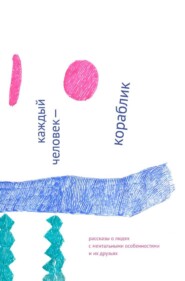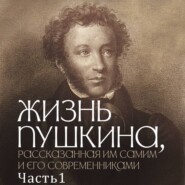По всем вопросам обращайтесь на: info@litportal.ru
(©) 2003-2025.
✖
The German Classics of the Nineteenth and Twentieth Centuries, Volume 02
Настройки чтения
Размер шрифта
Высота строк
Поля
After the Major had left her, Charlotte sat on, buried in her own reflections; but it was only for a few minutes. Ottilie suddenly raised herself from her lap, and looked full with her large eyes in her friend's face. Then she got up from off the ground, and stood upright before her.
"This is the second time," began the noble girl, with an irresistible solemnity of manner, "this is the second time that the same thing has happened to me. You once said to me that similar things often befall people more than once in their lives in a similar way, and if they do, it is always at important moments. I now find that what you said is true, and I have to make a confession to you. Shortly after my mother's death, when I was a very little child, I was sitting one day on a footstool close to you. You were on a sofa, as you are at this moment, and my head rested on your knees. I was not asleep, I was not awake: I was in a trance. I knew everything which was passing about me. I heard every word which was said with the greatest distinctness, and yet I could not stir, I could not speak; and if I had wished it, I could not have given a hint that I was conscious. On that occasion you were speaking about me to one of your friends; you were commiserating my fate, left as I was a poor orphan in the world. You described my dependent position, and how unfortunate a future was before me, unless some very happy star watched over me. I understood well what you said. I saw, perhaps too clearly, what you appeared to hope of me, and what you thought I ought to do. I made rules to myself, according to such limited insight as I had, and by these I have long lived; by these, at the time when you so kindly took charge of me, and had me with you in your house, I regulated whatever I did and whatever I left undone.
"But I have wandered out of my course; I have broken my rules; I have lost the very power of feeling them. And now, after a dreadful occurrence, you have again made clear to me my situation, which is more pitiable than the first. While lying in a half torpor on your lap, I have again, as if out of another world, heard every syllable which you uttered. I know from you how all is with me. I shudder at the thought of myself; but again, as I did then, in my half sleep of death, I have marked out my new path for myself.
"I am determined, as I was before, and what I have determined I must tell you at once. I will never be Edward's wife. In a terrible manner God has opened my eyes to see the sin in which I was entangled. I will atone for it, and let no one think to move me from my purpose. It is by this, my dearest, kindest friend, that you must govern your own conduct. Send for the Major to come back to you. Write to him that no steps must be taken. It made me miserable that I could not stir or speak when he went. I tried to rise—I tried to cry out. Oh, why did you let him leave you with such unlawful hopes!"
Charlotte saw Ottilie's condition, and she felt for it; but she hoped that by time and persuasion she might be able to prevail upon her. On her uttering a few words, however, which pointed to a future—to a time when her sufferings would be alleviated, and when there might be better room for hope, "No!" Ottilie cried, with vehemence, "do not endeavor to move me; do not seek to deceive me. At the moment at which I learn that you have consented to the separation, in that same lake I will expiate my errors and my crimes."
CHAPTER XV
Friends and relatives, and all persons living in the same house together, are apt, when life is going smoothly and peacefully with them, to make what they are doing, or what they are going to do, even more than is right or necessary, a subject of constant conversation. They talk to each other of their plans and their occupations, and, without exactly taking one another's advice, consider and discuss together the entire progress of their lives. But this is far from being the case in serious moments; just when it would seem men most require the assistance and support of others, they all draw singly within themselves, every one to act for himself, every one to work in his own fashion; they conceal from one another the particular means which they employ, and only the result, the object, the thing which they realize, is again made common property.
After so many strange and unfortunate incidents, a sort of silent seriousness had passed over the two ladies, which showed itself in a sweet mutual effort to spare each other's feelings. The child had been buried privately in the chapel. It rested there as the first offering to a destiny full of ominous foreshadowings.
Charlotte, as soon as ever she could, turned back to life and occupation, and here she first found Ottilie standing in need of her assistance. She occupied herself almost entirely with her, without letting it be observed. She knew how deeply the noble girl loved Edward. She had discovered by degrees the scene which had preceded the accident, and had gathered every circumstance of it, partly from Ottilie herself, partly from the letters of the Major.
Ottilie, on her side, made Charlotte's immediate life much more easy for her. She was open, and even talkative, but she never spoke of the present, or of what had lately passed. She had been a close and thoughtful observer. She knew much, and now it all came to the surface. She entertained, she amused Charlotte, and the latter still nourished a hope in secret to see her married to Edward after all.
But something very different was passing in Ottilie. She had disclosed the secret of the course of her life to her friend, and she showed no more of her previous restraint and submissiveness. By her repentance and her resolution she felt herself freed from the burden of her fault and her misfortune. She had no more violence to do to herself. In the bottom of her heart she had forgiven herself solely under condition of the fullest renunciation, and it was a condition which would remain binding for all time to come.
So passed away some time, and Charlotte now felt how deeply house and park, and lake and rocks and trees, served to keep alive in them all their most painful reminiscences. They wanted change of scene, both of them, it was plain enough; but how it was to be effected was not so easy to decide.
Were the two ladies to remain together? Edward's previously expressed will appeared to enjoin it—his declarations and his threats appeared to make it necessary; only it could not be now mistaken that Charlotte and Ottilie, with all their good will, with all their sense, with all their efforts to conceal it, could not avoid finding themselves in a painful situation toward each other. In their conversation there was a constant endeavor to avoid doubtful subjects. They were often obliged only half to understand some allusion; more often, expressions were misinterpreted, if not by their understandings, at any rate by their feelings. They were afraid to give pain to each other, and this very fear itself produced the evil which they were seeking to avoid.
If they were to try change of scene, and at the same time (at any rate for a while) to part, the old question came up again: Where was Ottilie to go? There was the grand, rich family, who still wanted a desirable companion for their daughter, their attempts to find a person whom they could trust having hitherto proved ineffectual. The last time the Baroness had been at the castle, she had urged Charlotte to send Ottilie there, and she had been lately pressing it again and again in her letters. Charlotte now a second time proposed it; but Ottilie expressly declined going anywhere, where she would be thrown into what is called the great world.
"Do not think me foolish or self-willed, my dear aunt," she said; "I had better tell you what I feel, for fear you should judge hardly of me; although in any other case it would be my duty to be silent. A person who has fallen into uncommon misfortunes, however guiltless he may be, carries a frightful mark upon him. His presence, in every one who sees him and is aware of his history, excites a kind of horror. People see in him the terrible fate which has been laid upon him, and he is the object of a diseased and nervous curiosity. It is so with a house, it is so with a town, where any terrible action has been done; people enter them with awe; the light of day shines less brightly there, and the stars seem to lose their lustre.
"Perhaps we ought to excuse it, but how extreme is the indiscretion with which people behave toward such unfortunates, with their foolish importunities and awkward kindness! You must forgive me for speaking in this way, but that poor girl whom Luciana tempted out of her retirement, and with such mistaken good nature tried to force into society and amusement, has haunted me and made me miserable. The poor creature, when she was so frightened and tried to escape, and then sank and swooned away, and I caught her in my arms, and the party came all crowding round in terror and curiosity!—little did I think, then, that the same fate was in store for me. But my feeling for her is as deep and warm and fresh as ever it was; and now I may direct my compassion upon myself, and secure myself from being the object of any similar exposure."
"But, my dear child," answered Charlotte, "you will never be able to withdraw yourself where no one can see you; we have no cloisters now: otherwise, there, with your present feelings, would be your resource."
"Solitude would not give me the resource for which I wish, my dear aunt," answered Ottilie. "The one true and valuable resource is to be looked for where we can be active and useful; all the self-denials and all the penances on earth will fail to deliver us from an evil-omened destiny, if it be determined to persecute us. Let me sit still in idleness and serve as a spectacle for the world, and it will overpower me and crush me. But find me some peaceful employment, where I can go steadily and unweariedly on doing my duty, and I shall be able to bear the eyes of men, when I need not shrink under the eyes of God."
"Unless I am much mistaken," replied Charlotte, "your inclination is to return to the school."
"Yes," Ottilie answered; "I do not deny it. I think it a happy destination to train up others in the beaten way, after having been trained in the strangest myself. And do we not see the same great fact in history? some moral calamity drives men out into the wilderness; but they are not allowed to remain as they had hoped in their concealment there. They are summoned back into the world, to lead the wanderers into the right way; and who are fitter for such a service, than those who have been initiated into the labyrinths of life? They are commanded to be the support of the unfortunate; and who can better fulfil that command than those who have no more misfortunes to fear upon earth?"
"You are selecting an uncommon profession for yourself," replied Charlotte. "I shall not oppose you, how ever. Let it be as you wish; only I hope it will be but for a short time."
"Most warmly I thank you," said Ottilie, "for giving me leave at least to try, to make the experiment. If I am not flattering myself too highly, I am sure I shall succeed: wherever I am, I shall remember the many trials which I went through myself, and how small, how infinitely small they were compared to those which I afterward had to undergo. It will be my happiness to watch the embarrassments of the little creatures as they grow; to cheer them in their childish sorrows, and guide them back with a light hand out of their little aberrations. The fortunate is not the person to be of help to the unfortunate; it is in the nature of man to require ever more and more of himself and others, the more he has received. The unfortunate who has himself recovered, knows best how to nourish, in himself and them, the feeling that every moderate good ought to be enjoyed with rapture."
"I have but one objection to make to what you propose," said Charlotte, after some thought, "although that one seems to me of great importance. I am not thinking of you, but of another person: you are aware of the feelings toward you of that good, right-minded, excellent Assistant. In the way in which you desire to proceed, you will become every day more valuable and more indispensable to him. Already he himself believes that he can never live happily without you, and hereafter, when he has become accustomed to have you to work with him, he will be unable to carry on his business if he loses you; you will have assisted him at the beginning only to injure him in the end."
"Destiny has not dealt with me with too gentle a hand," replied Ottilie; "and whoever loves me has perhaps not much better to expect. Our friend is so good and so sensible, that I hope he will be able to reconcile himself to remaining in a simple relation with me; he will learn to see in me a consecrated person, lying under the shadow of an awful calamity, and only able to support herself and bear up against it by devoting herself to that Holy Being who is invisibly around us, and alone is able to shield us from the dark powers which threaten to overwhelm us."
All this, which the dear girl poured out so warmly, Charlotte privately reflected over; on many different occasions, although only in the gentlest manner, she had hinted at the possibility of Ottilie's being brought again in contact with Edward; but the slightest mention of it, the faintest hope, the least suspicion, seemed to wound Ottilie to the quick. One day when she could not evade it, she expressed herself to Charlotte clearly and peremptorily on the subject.
"If your resolution to renounce Edward," returned Charlotte, "is so firm and unalterable, then you had better avoid the danger of seeing him again. At a distance from the object of our love, the warmer our affection, the stronger is the control which we fancy that we can exercise on ourselves; because the whole force of the passion, diverted from its outward objects, turns inward on ourselves. But how soon, how swiftly is our mistake made clear to us, when the thing which we thought that we could renounce, stands again before our eyes as indispensable to us! You must now do what you consider best suited to your circumstances. Look well into yourself; change, if you prefer it, the resolution which you have just expressed. But do it of yourself, with a free consenting heart. Do not allow yourself to be drawn in by an accident; do not let yourself be surprised into your former position. It will place you at issue with yourself and will be intolerable to you. As I said, before you take this step, before you remove from me, and enter upon a new life, which will lead you no one knows in what direction, consider once more whether really, indeed, you can renounce Edward for the whole time to come. If you have faithfully made up your mind that you will do this, then will you enter into an engagement with me, that you will never admit him into your presence; and if he seeks you out and forces himself upon you, that you will not exchange words with him?"
Ottilie did not hesitate a moment; she gave Charlotte the promise, which she had already made to herself.
Now, however, Charlotte began to be haunted with Edward's threat, that he would only consent to renounce Ottilie, as long as she was not parted from Charlotte. Since that time, indeed, circumstances were so altered, so many things had happened, that an engagement which was wrung from him in a moment of excitement might well be supposed to have been cancelled. She was unwilling, however, in the remotest sense to venture anything or to undertake anything which might displease him, and Mittler was therefore to find Edward, and inquire what, as things now were, he wished to be done.
Since the death of the child, Mittler had often been at the castle to see Charlotte, although only for a few moments at a time. The unhappy accident which had made her reconciliation with her husband in the highest degree improbable, had produced a most painful effect upon him. But ever, as his nature was, hoping and striving, he rejoiced secretly at the resolution of Ottilie. He trusted to the softening influence of passing time; he hoped that it might still be possible to keep the husband and the wife from separating; and he tried to regard these convulsions of passion only as trials of wedded love and fidelity.
Charlotte, at the very first, had informed the Major by letter of Ottilie's declaration. She had entreated him most earnestly to prevail on Edward to take no further steps for the present. They should keep quiet and wait, and see whether the poor girl's spirits would recover. She had let him know from time to time whatever was necessary of what had more lately fallen from her. And now Mittler had to undertake the really difficult commission of preparing Edward for an alteration in her situation. Mittler, however, well knowing that men can be brought more easily to submit to what is already done, than to give their consent to what is yet to be done, persuaded Charlotte that it would be better to send Ottilie off at once to the school.
Consequently, as soon as Mittler was gone, preparations were at once made for the journey. Ottilie put her things together; and Charlotte observed that neither the beautiful box, nor anything out of it, was to go with her. Ottilie had said nothing to her on the subject; and she took no notice, but let her alone. The day of the departure came; Charlotte's carriage was to take Ottilie the first day as far as a place where they were well known, where she was to pass the night, and on the second she would go on in it to the school. It was settled that Nanny was to accompany her, and remain as her attendant.
This capricious little creature had found her way back to her mistress after the death of the child, and now hung about her as warmly and passionately as ever; indeed she seemed, with her loquacity and attentiveness, as if she wished to make good her past neglect, and henceforth devote herself entirely to Ottilie's service. She was quite beside herself now for joy at the thought of traveling with her, and of seeing strange places, when she had hitherto never been away from the scene of her birth; and she ran from the castle to the village to carry the news of her good fortune to her parents and her relations, and to take leave.
Unluckily for herself, she went, among other places, into a room where a person was who had the measles, and caught the infection, which came out upon her at once. The journey could not be postponed. Ottilie herself was urgent to go. She had traveled once already the same road. She knew the people of the hotel where she was to sleep. The coachman from the castle was going with her. There could be nothing to fear.
Charlotte made no opposition. She, too, in thought, was making haste to be clear of present embarrassments. The rooms which Ottilie had occupied at the castle she would have prepared for Edward as soon as possible, and restored to the old state in which they had been before the arrival of the Captain. The hope of bringing back old happy days burns up again and again in us, as if it never could be extinguished. And Charlotte was quite right; there was nothing else for her except to hope as she did.
CHAPTER XVI
When Mittler was come to talk the matter over with Edward, he found him sitting by himself, with his head supported on his right hand, and his arm resting on the table. He appeared in great suffering.
"Is your headache troubling you again?" asked Mittler.
"It is troubling me," answered he; "and yet I cannot wish it were not so, for it reminds me of Ottilie. She too, I say to myself, is also suffering in the same way at this same moment, and suffering more perhaps than I; and why cannot I bear it as well as she? These pains are good for me. I might almost say that they were welcome; for they serve to bring out before me with the greater vividness her patience and all her other graces. It is only when we suffer ourselves, that we feel really the true nature of all the high qualities which are required to bear suffering."
Mittler, finding his friend so far resigned, did not hesitate to communicate the message with which he had been sent. He brought it out piecemeal, however; in order of time, as the idea had itself arisen between the ladies, and had gradually ripened into a purpose. Edward scarcely made an objection. From the little which he said, it appeared as if he was willing to leave everything to them; the pain which he was suffering at the moment making him indifferent to all besides.
Scarcely, however, was he again alone, than he got up, and walked rapidly up and down the room; he forgot his pain, his attention now turning to what was external to himself. Mittler's story had stirred the embers of his love, and awakened his imagination in all its vividness. He saw Ottilie by herself, or as good as by herself, traveling on a road which was well known to him—in a hotel with every room of which he was familiar. He thought, he considered, or rather he neither thought nor considered; he only wished—he only desired. He would see her; he would speak to her. Why, or for what good end that was to come of it, he did not care to ask himself; but he made up his mind at once. He must do it.
He summoned his valet into his council, and through him he made himself acquainted with the day and hour when Ottilie was to set out. The morning broke. Without taking any person with him, Edward mounted his horse, and rode off to the place where she was to pass the night. He was there too soon. The hostess was overjoyed at the sight of him; she was under heavy obligations to him for a service which he had been able to do for her. Her son had been in the army, where he had conducted himself with remarkable gallantry. He had performed one particular action of which no one had been a witness but Edward; and the latter had spoken of it to the commander-in-chief in terms of such high praise that, notwithstanding the opposition of various ill-wishers, he had obtained a decoration for him. The mother, therefore, could never do enough for Edward. She got ready her best room for him, which indeed was her own wardrobe and store-room, with all possible speed. He informed her, however, that a young lady was coming to pass the night there, and he ordered an apartment for her at the back, at the end of the gallery. It sounded a mysterious sort of affair; but the hostess was ready to do anything to please her patron, who appeared so interested and so busy about it. And he, what were his sensations as he watched through the long, weary hours till evening? He examined the room round and round in which he was to see her; with all its strangeness and homeliness it seemed to him to be an abode for angels. He thought over and over what he had better do; whether he should take her by surprise, or whether he should prepare her for meeting him. At last the second course seemed the preferable one. He sat down and wrote a letter, which she was to read:
EDWARD TO OTTILIE
"While you read this letter, my best beloved, I am close to you. Do not agitate yourself; do not be alarmed; you have nothing to fear from me. I will not force myself upon you. I will see you or not, as you yourself shall choose.
"Consider, oh! consider your condition and mine. How must I not thank you, that you have taken no decisive step! But the step which you have taken is significant enough. Do not persist in it. Here, as it were, at a parting of the ways, reflect once again. Can you be mine:—will you be mine? Oh, you will be showing mercy on us all if you will; and on me, infinite mercy.
"Let me see you again!—happily, joyfully see you once more! Let me make my request to you with my own lips; and do you give me your answer your own beautiful self, on my breast, Ottilie! where you have so often rested, and which belongs to you for ever!"
As he was writing, the feeling rushed over him that what he was longing for was coming—was close—would be there almost immediately. By that door she would come in; she would read that letter; she in her own person would stand there before him as she used to stand; she for whose appearance he had thirsted so long. Would she be the same as she was?—was her form, were her feelings changed? He still held the pen in his hand; he was going to write as he thought, when the carriage rolled into the court. With a few hurried strokes he added: "I hear you coming. For a moment, farewell!"
He folded the letter, and directed it. He had no time for sealing. He darted into the room through which there was a second outlet into the gallery, when the next moment he recollected that he had left his watch and seals lying on the table. She must not see these first. He ran back and brought them away with him. At the same instant he heard the hostess in the antechamber showing Ottilie the way to her apartments. He sprang to the bedroom door. It was shut. In his haste, as he had come back for his watch, he had forgotten to take out the key, which had fallen out, and lay the other side. The door had closed with a spring, and he could not open it. He pushed at it with all his might, but it would not yield. Oh, how gladly would he have been a spirit, to escape through its cracks! In vain. He hid his face against the panels. Ottilie entered, and the hostess, seeing him, retired. From Ottilie herself, too, he could not remain concealed for a moment. He turned toward her; and there stood the lovers once more, in such strange fashion, in each other's presence. She looked at him calmly and earnestly, without advancing or retiring. He made a movement to approach her, and she withdrew a few steps toward the table. He stepped back again. "Ottilie!" he cried aloud, "Ottilie! let me break this frightful silence! Are we shadows, that we stand thus gazing at each other? Only listen to me; listen to this at least. It is an accident that you find me here thus. There is a letter on the table, at your side there, which was to have prepared you. Read it, I implore you—read it—and then determine as you will!"
She looked down at the letter; and after thinking a few seconds, she took it up, opened it, and read it: she finished it without a change of expression; and she laid it lightly down; then joining the palms of her hands together, turning them upward, and drawing them against her breast, she leant her body a little forward, and regarded Edward with such a look, that, eager as he was, he was compelled to renounce everything he wished or desired of her. Such an attitude cut him to the heart; he could not bear it. It seemed exactly as if she would fall upon her knees before him, if he persisted. He hurried in despair out of the room, and leaving her alone, sent the hostess in to her.
He walked up and down the antechamber. Night had come on, and there was no sound in the room. At last the hostess came out and drew the key out of the lock. The good woman was embarrassed and agitated, not knowing what it would be proper for her to do. At last as she turned to go, she offered the key to Edward, who refused it; and putting down the candle, she went away.
In misery and wretchedness, Edward flung himself down on the threshold of the door which divided him from Ottilie, moistening it with his tears as he lay. A more unhappy night had been seldom passed by two lovers in such close neighborhood!

















